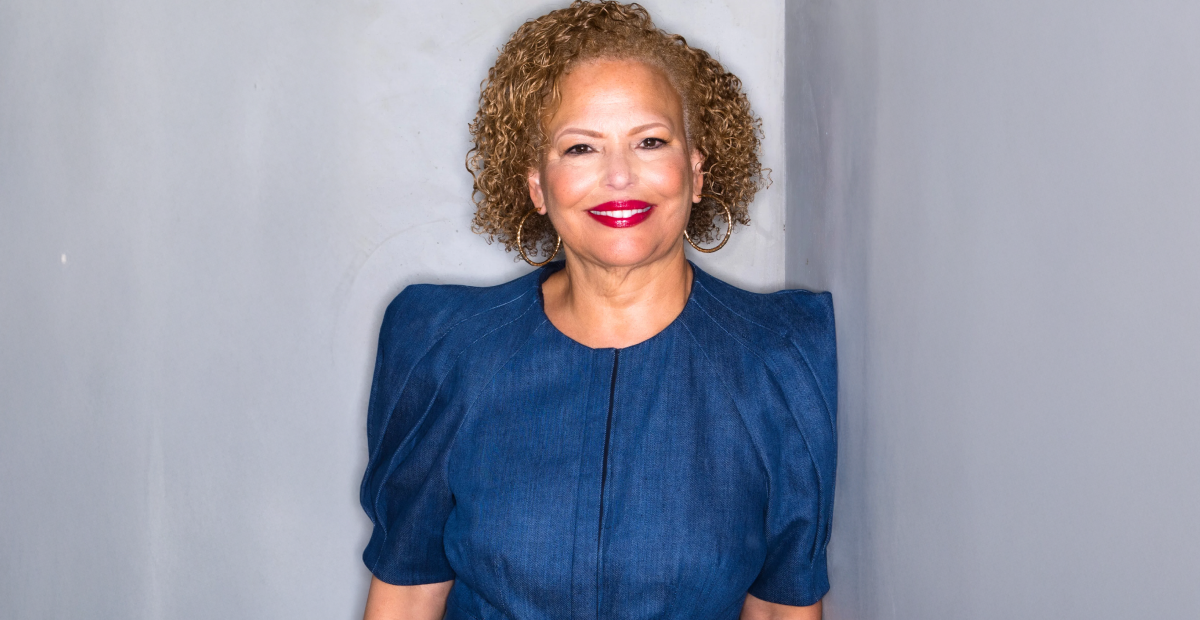As a first-generation Latina, Nellie Borrero is no stranger to the subtle slights and overt racism that women of color endure at work. At her first office Christmas party, a colleague handed her a gift-wrapped can of roach spray and told her everyone knew Puerto Ricans had roaches in their homes. Since that moment, Borrero has dedicated her 37-year career at Accenture to making the company a welcoming place for women of color — and everyone.
Now as the Senior Strategic Adviser for Global Inclusion and Diversity, she has steered the company away from those deep-rooted biases, leading Accenture to become a top ranked employer for DEI in the United States. Borrero is sharing her wisdom in a new book, Unwavering: Rejecting Bias, Igniting Change, Celebrating Inclusion. In the exclusive excerpt below, she outlines how women and women of color can control the narrative about their careers by boldly embracing their accomplishments and ambitions, without guilt, undue gratitude or apologies. — Audrey Goodson Kingo

Photo Credit: Wiley
During a women’s development program I once facilitated, a participant stood up to share her experience: “Nellie, one of my colleagues told me that I got promoted simply because I am a woman.” Her discomfort and disappointment were visible, and I could see by the expressions of others in the room that this was a familiar scenario. No surprise. Women across industries have dealt with this perception for quite some time.
I responded by posing three important questions: “Do you believe that to be true? Can you control the beliefs and perceptions of others? What power do you have to change that narrative about you?”
When choosing our response to this type of comment, we must first believe that we have earned this new opportunity or promotion. Second, we must admit that we cannot fully control the beliefs or biases of others. Finally, we must understand that we do have the power to influence our narrative. To that end, we do what we have always done: deliver to our fullest potential and let our results do the talking.
It was clear that the audience wanted to continue the conversation, and another person asked a follow-up question: “How should we directly respond to those types of comments?”
I gave her a sly smile that hinted at the type of unfiltered reply I want to give in those moments, but then I gave her my professional response: “I am looking forward to the value I will add at this new level. I welcome advice, thoughts, ideas, or recommendations you may have for me as I focus on meeting the goals associated with this role.”
Notice that my response did not include phrases such as, “I am grateful, I am appreciative, or I am so excited about this promotion.” That is not by accident. I focused on my value and opened the door to any recommendations related to meeting my goals. I always welcome and acknowledge people’s input. I will not, however, feed into commentary that attempts to diminish my accomplishments. When we fail to claim our space and we allow others to minimize us, we may also start to minimize ourselves without even realizing it.
Let’s look at some scenarios that display how each of these examples can play out in our professional lives:
Being overly gracious, grateful, and accommodating to others.
We continuously state how appreciative we are for our positions and opportunities “given to us.” It shows up in how we engage in email correspondence when we insert lots of politeness before and after the actual substance of the message. We spend our valuable time reading and rereading our crafted emails before hitting that send button. Here’s an example:
“Thank you for the opportunity you have provided me! I appreciate you thinking of me and believing in me! I am so excited about having been selected! I am looking forward to showcasing my value. I will not let you down! Please let me know if there is anything I can help you with in the meantime.”
I would never suggest not being gracious, grateful, or accommodating. However, I do suggest that we decipher when that behavior is appropriate and sincere, versus when there is a need to be an obliger or make others feel overly appreciated. We need to focus on what we have earned versus what we believe has been gifted to us. Here’s what that looks like:
“I am looking forward to engaging in the new role. Thank you for recognizing my skills and experience and the value both will add. Appreciating your sponsorship.”
Apologizing for our own perspectives.
I once decided to count the number of times I apologized in a single day. It was 17 times! I am not alone in this minimizing habit. I often see members of diverse groups apologize for going first or for having to interrupt in order to show up. We even apologize for correcting something or someone, though we know we are right. Think about how often you apologize on any given day. Are those apologies warranted, or do they come from a place of wanting to be accepted or overly accommodating?
I have seen so many scenarios where women and people of color find themselves in situations where they have incredibly powerful insights to contribute to conversations. Yet their hyper-awareness of wanting to be perceived in a collaborative and nonthreatening way makes them overly cautious in how they share their input, challenge a thought, or disagree. This is why many times we will hear people of color starting a sentence with, “I am sorry, but let me . . .” Or “Let me apologize in advance, but . . .” Or “Sorry, can I . . .”
Instead of using those apologetic intros, I have intentionally shifted to statements like “Adding to what has been said,” or “Inserting some thoughts here to . . .” or “Agree with all or most of what has been said; however, let me share another perspective . . .” By shifting to these, I immediately began to feel more accomplished, assertive, and productive.
Giving up opportunities we have earned to others.
Too often we give up our space, our seat, and our opportunities to others. We do it either in the spirit of “collaboration” or we do it because we simply do not feel ready to be more visible and confidently claim what we have earned. We may opt out because we feel pressure to convince ourselves we are 100% ready. We are not comfortable with gifting ourselves any room for those critically important learning curves.
Instead of “Why me?” or “I don’t think I am the right choice,” get comfortable with, “Thank you, I am looking forward to getting started,” “What are the expectations of the role?” and “How do you envision the transition?”
Not boldly promoting ourselves, our skills, or our expertise.
Immediately after a weekly team call, I reached out to one of the executives on the team to ask her why she wasn’t actively engaging on our calls. I was very familiar with her level of expertise, as well as her incredible ability to motivate others, and both had been missing during recent calls. She said, “Nellie, I am being mindful of feedback that has been shared about me that I take up too much space.” I was not expecting that response, and we immediately walked through it together. We determined that the feedback was coming from just one colleague and identified some potential reasons why that person would choose to spread that narrative. We then focused on the need for her not to let that feedback completely shut her down. Not only was it harmful for her, but it was also harmful for others who would be stripped of the opportunity to learn from her.
Accepting limited investment in our professional development.
We must hold our organizations accountable for their responsibility in providing opportunities for our growth. We should all expect our leadership to invest in us, so ask yourself these questions: Are you being selected to participate in development programs within your organization? If yes, are you investing in yourself to gain the most of those programs, or are you a passive participant? If you are not being selected, do you have clarity as to why not? And will you choose to engage with your leadership to ensure you are selected in the future?
Choosing to take an inactive stance when devalued.
One person’s perspective can lead to a broader narrative about our worth. In some cases, the action is visible and obvious: a leader who refuses to further our professional development or intentionally places hurdles in the way of our advancement. In other cases, seeds are quietly planted, creating a narrative about you that could potentially impact your credibility and derail your success. Choosing not to address it in a balanced and productive manner can negatively influence the course and trajectory of your career. It is important to take charge of these situations. Don’t leave these things to chance in hopes that they will go away.
Feeling concerned about being perceived as too ambitious.
There are times when we have aspirational career goals, but we hesitate to share them with those who can help us reach them, convincing ourselves that we should “wait our turn” instead of being assertive. We worry about being labeled as overly ambitious. There is absolutely nothing wrong with being ambitious. There is everything right about letting leaders and our network know what we aspire to accomplish and demonstrating our abilities to do so. We can’t expect leaders to read our minds. Define your ambition strategy. Identify which key leaders may play a part in helping you achieve your goals. Put them on notice. Be proactive and take the initiative to engage. That is a key piece to evolving your career and ensuring continued mentorship and support.
Excerpted with permission by the publisher, Wiley, from "Unwavering: Rejecting Bias, Igniting Change, Celebrating Inclusion" by Nellie Borrero. Copyright © 2024 Accenture Global Solutions. All rights reserved. This book is available wherever books and eBooks are sold.



